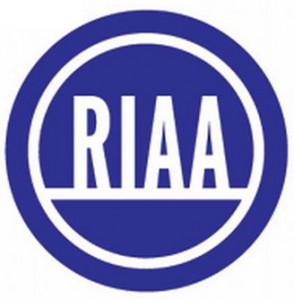 Associations representing content owners have announced an agreement with ISPs to establish a “common framework of ‘best practices’ to effectively alert subscribers, protect copyrighted content and promote access to legal online content.”
Associations representing content owners have announced an agreement with ISPs to establish a “common framework of ‘best practices’ to effectively alert subscribers, protect copyrighted content and promote access to legal online content.”
A fact sheet from the newly created Center for Copyright Information provides more details. Upon notification that an internet subscriber’s account is being used to illegally download copyrighted material, ISPs will send the subscriber a series of up to six “copyright alerts” that will notify him or her “that his/her account may have been misused for content theft, that content theft is illegal and a violation of published polices, and that consequences could result from any such conduct.” After the fifth alerts, ISPs may use “mitigation measures” such as “temporary reductions of internet speeds, redirection to a landing page until the subscriber contacts the ISP to discuss the matter or reviews and responds to some educational information about copyright, or other measures that the ISP may deem necessary.”
A fact sheet made available by the newly created Center for Copyright Information stresses that the “the alert system does not, in any circumstance, require the ISP to terminate an Internet subscriber’s account,” but notes that the Digital Millennium Copyright Act requires ISPs to have a termination policy in place in order to be covered by its safe harbors. The agreement does not include a mechanism for ISPs to share users’ identifying information without a court order.
For a fee of $35, internet subscribers “may request independent review to invalite the alert and avoid any Mitigation Measure on the basis that the online activity in question is lawrul or that the subscriber’s account was identied in error.”
Cary Sherman, President of the RIAA is quoted in the press release:
This groundbreaking agreement ushers in a new day and a fresh approach to addressing the digital theft of copyrighted works. We hope that it signals a new era in which all of us in the technology and entertainment value chain work collaboratively to make the Internet a more safe and legal experience for users. It is a significant step forward not only for the creative community, which invests in and brings great entertainment to the public, but for consumers and the legitimate online marketplace as well.
Victoria Espinel, U.S. Intellectual Property Enforcement Coordinator said in a statement:
We believe that this agreement is a positive step and consistent with our strategy of encouraging voluntary efforts to strengthen online intellectual property enforcement and with our broader Internet policy principles, emphasizing privacy, free speech, competition and due process.
As such, we will follow the implementation and outcomes of this arrangement with great interest. Our expectation is that the new organization created by it will have ongoing consultations with privacy and freedom of expression advocacy groups to assure that its practices are fully consistent with the democratic values that have helped the Internet to flourish.
Abigail Philips from EFF asked in a blog:
What happens after six alerts? The materials emphatically state that ISPs are not required to terminate subscriber accounts as a condition of the agreement with the content industry and that the collaboration does not amount to a “three strikes” regime. But the materials also take pains to assert that the DMCA “requires that the ISPs have in place a termination policy for repeat copyright infringers as a condition of availing themselves of the Act’s ‘safe harbor’ provision.” Translation: The content industry is staking its position that ISPs that don’t terminate subscribers after 5 or 6 alerts will lose their DMCA protection. There are plenty of arguments for why that position is wrong; given that an alert represents nothing more than an allegation untried by a court, we think loss of Internet access would be a draconian measure that Congress did not intend. Nonetheless, it may take an ISP willing to litigate the issue to make the argument.
Sherwin Siy from Public Knowledge said in a blog:
On the whole, the program could be a reasonable effort to reduce P2P infringement and reduce the need for expensive and inefficient litigation. But it clearly has lots of kinks to be worked out and devils to be cleared in the details.
It’s important, though, to consider that this agreement still sits within a larger framework of actions and consequences for the individual accused user. The ISP, independently of this system, could still kick a user off for a terms of service violation without any of this process. Content companies can still subpoena ISPs for user information at any time and proceed in a civil suit against the individual. And the DMCA requires ISPs to terminate “repeat infringers.” All of these provisions operate in parallel—from existing precedent, for instance, it seems unlikely that a mere Alert makes someone an “infringer” in the eyes of the law. But it would be a mistake to think that the CAS is the only remedy out there. But it does provide the most likely avenue for content and ISPs to take action against file-sharers—litigation is expensive, and, as noted above, ISPs generally don’t have a big interest in disconnecting customers when they can reform them instead.
Industry Documents:
- Center for Copyright Information and Copyright Alert System Fact Sheet
- Joint Press Release: Music, Movie, TV and Broadband Leaders Team to Curb Online Content Theft: Announce Common Framework for “Copyright Alerts”
News, Blogs, Commentary
- Matthew Schwartz for Information Week. ISPs Agree to Copyright Alerts: What It Means.
- Abigail Phillips for EFF’s Deeplinks Blog. The Content Industry and ISPs Announce a “Common Framework for Copyright Alerts”: What Does it Mean for Users?
- Sherwin Siy, Public Knowledge. Thoughts on the Copyright Alert System.




